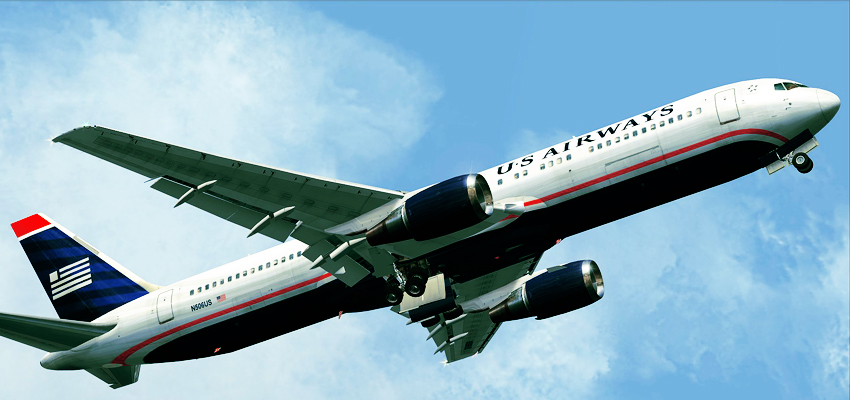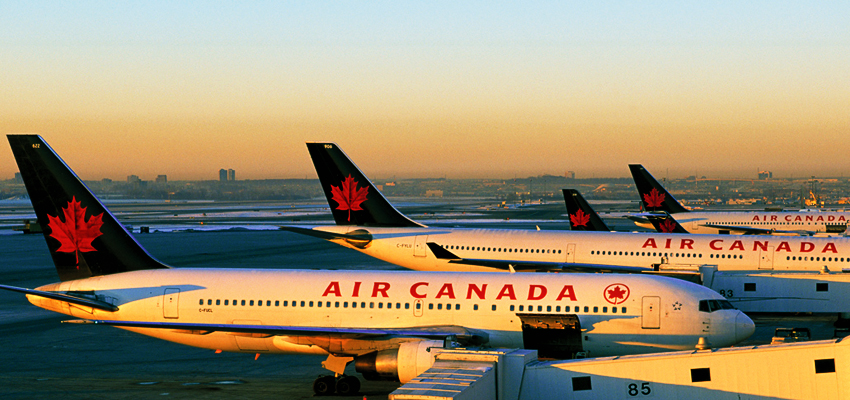Whether you’re taking a vacation or whether travel is a lifestyle for you, there are a few things you should do before arriving at a new destination. Here are 16 things to do to ensure your travels run smoothly and safely. (See also: Checklist of 20 Things to do Before Travelling Long-Term)
Reader Question:
Dear Nora,
I’m overwhelmed! There’s so much to plan for my upcoming travels, I don’t know where to start. I’m going to a bunch of different places, and I want to make sure I get the most out of each destination but I also don’t want to plan too much, since I know I’ll probably find cool stuff to do once I’m there. What do I need to do before arriving at each new destination?
– Patricia
Patricia, you have the right idea in not wanting to plan your trip too much. Some of the best travel experiences happen on the fly when you meet new people and discover opportunities that can’t be found online or in guidebooks.
At the same time, there are definitely some things you should do before you arrive at each new place to make the most of your time, money, and energy. Here are some recommendations; things that I and/or other members of the travelling community do:
Download Maps to Your Smartphone
You may or may not have a decent internet connection at your destination; if you’re travelling with a smartphone, you can download maps of your area for offline access as and when you need it.
Research the Local Dress Code
Some countries’ social etiquette require you to be more covered up than others, especially if you want to visit local temples. Don’t show up to a muslim country with luggage full of tank tops and shorts!
Overnight Layover? Figure out Your Options
Do you have an overnight layover? You might have some inexpensive options that allow you to catch some shut-eye without having to go far from the airport. Some airports have rooms you can pay by the hour for. Others have business class lounges for which you can buy a pass, with showers and areas to relax in style. Or maybe there’s an inexpensive hotel or hostel around the corner from the hotel, that provides free pick-up and drop-off. Most airport websites will show you these options.
If you’ve got a really awkward layover (such as arriving at 11pm and catching your next flight at 5am) and the above options don’t appeal, check out Sleeping In Airports for information on the best and safest places to hang out in and around airports around the world.

Virgin Airlines Lounge at Heathrow
Tight Layover? Know Your Options in Case you Miss Your Connection
I don’t like booking flights with anything less than a 90-minute layover since terminal changes, security checks, and delayed flights can create havoc with connecting flights. Even with a 90-minute layover, a delayed flight and busy arrivals lounge can mean missing your connection. Take a quick look at your airline’s flight schedules in advance so you know what options you have for getting on another plane, and how long you might have to wait.
Book Your First Night or Two of Accommodation
Professional travellers almost unanimously recommend booking your first night or two of accommodation before arriving. One time when arriving to Singapore late at night by train, I neglected to do so, and ended up wandering around the city most of the night in search of available accommodation, since I didn’t realize it was a special holiday and everything was full.
Deia Bong has traveled and lived as an expat around the world, and on her site Nomad Wallet she teaches people how to afford travel. “I check hotel booking sites and AirBnB to find cheap accommodation in a good location,” she says with regards to booking her accommodation before arriving.
Even if you’re staying for a while, you only need book the first few nights; once you arrive you might meet people or find better accommodation that you’d prefer to move to.
Know How to Reach Your Accommodation
This is another staple checklist item for experienced travellers. Some airports are better outfitted with public transportation options than others. Research exactly where your accommodation is in relation to the airport/train/bus station and how you can get there. Airport and hotel websites often provide this information, and a google search will usually result in finding a forum where travellers share links, prices, schedules, and recommendations.
Deia concurs: “At the very least, I should know how to get to the hotel because I may not get any internet access until after checking in.” She uses the city’s tourism website to figure out how to get into the city, and Google Maps to find public transport information. “Small towns and remote areas are a little more tricky — I start my research by Googling and asking a question on Twitter.”
Check the Tourist Board Website
Deia’s recommendation for checking the tourist board website is good for more than transportation options; you’ll get a basic overview of what’s available at your destination, current information, and occasionally access to a special accommodation or tour deal.
Research Tipping Etiquette
If you use North American tipping policies abroad, you might end up overtipping at best, and at worst you might offend somebody. Research and understand the tipping policies for taxi drivers, hotel staff, restaurant staff, etc., before you arrive.
Call Your Bank and Credit Card Companies
By calling your bank and credit card companies to advise them of your upcoming travel plans, they will create a travel alert on your file. (In some cases you can do this online). This significantly decreases the chances of your purchase being denied at the counter due to your bank/credit card company flagging a foreign purchase as potentially fraudulent.
Find a Local
To get the inside scoop (and sometimes free accommodation), connect with a local before you arrive. There are a variety of websites and services that will connect you with locals abroad, the most popular of which is Couchsurfing. Sarah of Coffeewithasliceoflife.com is a global gypsy and scuba-addicted travel blogger, who swears by it: “The Couchsurfing homepage has loads of info on events/meet ups organized by locals in that area. Go along to one and get chatting, and you’re likely to come out with a new place to stay and some tour guides!” Sarah suggests you complete your profile before you leave and get references to increase your chances of local hosts inviting you to stay with them.
Another cool way to find a local and experience a home-cooked meal or off-the-beaten-path tour is to find a host on Withlocals; a peer-to-peer marketplace connecting locals with travelers for unique and cost-effective cultural exchanges.
Check the Weather
You may think you know the weather at your destination, but it’s always worth double-checking. When I visited Australia I was flabbergasted at how cold certain areas were during their winter season. It’s not as much of a “sunburned country” as I thought – and I suffered for it by not being prepared.
Research Activities, but Don’t Plan (too Much)
Using tools like tourist board websites, guidebooks, and online searches, check out what you can see and do at your destination. It’s good to know what’s available and what the general costs are. But don’t pre-book much (if anything) before you go; you can often find different options when you arrive that might be better-suited to what you want, and cost even less.
Trekking in Nepal is an example; many travellers pre-book tours and trips from abroad and buy all kinds of expensive trekking gear, only to arrive and find local guides at a fraction of the online prices and lightly-used trekking gear being off-loaded by tourists who bought brand new gear just for the trek and didn’t want to lug it back home.
Not all tour operators are listed online; in fact the more local you want your trip to be, the more it will behoove you to wait and see what you find once you arrive.
Research/Buy a Local or International SIM Card
You may want to buy a local SIM card at your destination, and you can save time by researching your options before arriving. Becky Ances has travelled to over 25 countries and has spent the last five years living and travelling through Asia. Even if she’s staying somewhere for a few weeks, she gets a local SIM card and has it working within 24 hours of arriving. “I look it up online at some traveller’s forum like Trip Advisor to get recent, exact info for my brand of phone and to see if what options or companies are best for my needs (best for me is low minutes and high data).” She also looks at maps of the airport before arriving to see if there’s a phone store near the arrivals gate (as there often is).
As an alternative to buying a local SIM card, you could get an international SIM card which gives you a Canadian (or US) phone number for family and friends to call you on, no roaming charges, and reasonable rates for calls and data abroad. I have one with G3 Wireless and have found it very useful.
Other Reader Suggestions
I asked the travelling community on Facebook and Twitter what they do before arriving at a new destination, and got some interesting suggestions, such as:
James: I check restaurants near hotels and base my hotel choice on this. I also check opening times of attractions and find their locations on a map.
Sarah: I look at Google Streets to check what the area around my accommodation looks like (so I know I’m in the right place/I can find the door etc). For food and tourist stuff I ask for recommendations and maps from reception staff on arrival.
Carole: I use Google Earth to suss out area.
Is there anything you do before arriving at a new destination that’s not on this list? Please share in the comments!











I like to look up what attractions/museums etc. have free or discounted days. I also look for the free walking tours, which are always awesome to acquaint yourself with the place. Of course a good tour deserves a good tip!
Great tips, Jamie!
Great advice and great list! Thank you!
Regarding options for overnight layovers: Those who have a long layover in Istanbul with Turkish Airlines should know that they offer free accommodation at a hotel, complete with timely transportation. We took advantage of that once and even had time to leave the hotel to find dinner at a local restaurant. (They also offer free bus tours of Istanbul if the layover is during the day.)
Cool tip – Thanks, Linda!
This is a great list, Nora. One I would add that’s easily accomplished is to learn/brush up on some language basics. The tool I use is Fodor’s Travel Phrases. I’m an Apple user, so I have the app on both my iPad and iPhone. Many years ago I bought their entire package of languages and the $15 or so has more than paid for itself. What I like about Fodor’s Travel Phrases, and others like it, is that basic expressions are organized in useful categories and each expression has both written and audio versions. An Internet connection isn’t required so it’s easy to practise, and test yourself, just before arrival.
Hi Anne,
Great suggestion! Do the offline travel phrases also come in handy while communicating with people? As in, you can either show the phrase to them on your phone or play the audio of the phrase to get your point across?